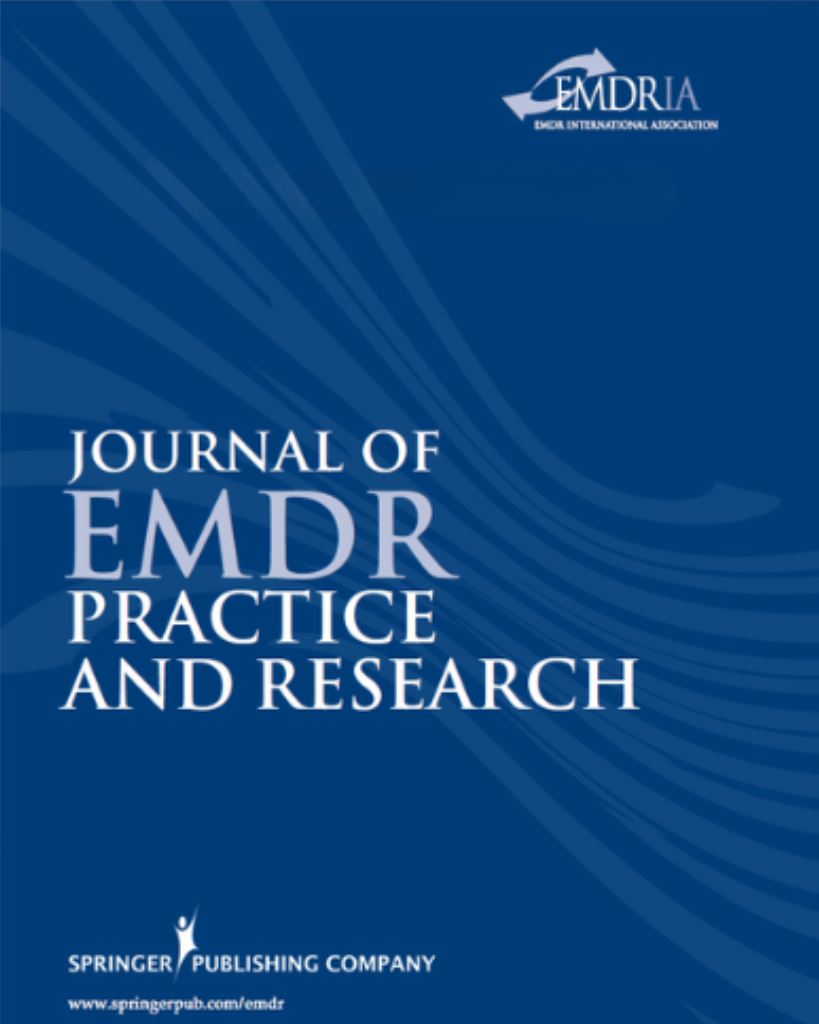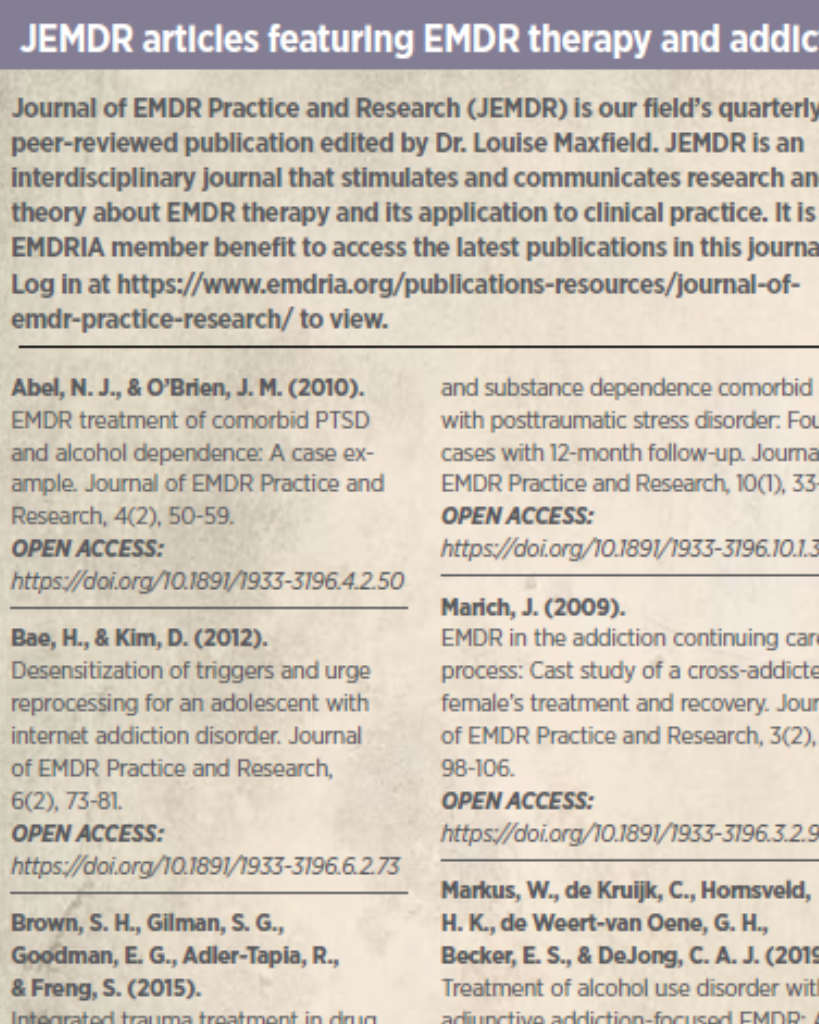EMDR Interventions in Addiction
Authors discuss potential of EMDR therapy to aid addiction treatment. Two approaches are distinguished: trauma-focused and addiction-focused.
Article Abstract
“The use of tobacco, alcohol, and illicit drugs is widespread and has significant negative consequences for the individual, their families, and the communities to which they belong. A substantial number of users develop an addiction disorder. Cure-oriented addiction treatment is challenging regarding treatment retention and relapse rates. Here, we discuss the potential of eye movement desensitization and reprocessing (EMDR) therapy to aid addiction treatment. Two approaches are distinguished: trauma-focused and addiction-focused EMDR therapy. Existing adapted EMDR protocols and research on both approaches is critically reviewed. Despite 20 years of development and research, the feasibility and efficacy of addiction-focused EMDR therapy is still largely uninvestigated. Exciting new possibilities, offered by research on working memory theory, are discussed. An overview of all resourcing and EMDR therapy interventions in addiction is presented: the palette of EMDR interventions in addiction (PEIA). The article finishes with recommendations for further research in this field.”
—Description from publisher
Article Access
Open Access
Markus, W., & Hornsveld, H. K. (2017). EMDR Interventions in Addiction. Journal of EMDR Practice and Research, 11(1), 3–29. https://doi.org/10.1891/1933-3196.11.1.3
About the Journal
The Journal of EMDR Practice and Research is a peer-reviewed publication devoted to integrative, state-of-the-art papers about Eye Movement Desensitization and Reprocessing. It is a broadly conceived interdisciplinary journal that stimulates and communicates research and theory about EMDR, and their application to clinical practice. The Journal of EMDR Practice and Research is the Official Publication of the EMDR International Association.
Date
March 1, 2017
Creator(s)
Wiebren Markus, Hellen K. Hornsveld
Topics
Addictions
Practice & Methods
Protocols
Extent
27 pages
Publisher
Springer Publishing Company
Rights
Copyright © 2017 EMDR International Association
APA Citation
Markus, W., & Hornsveld, H. K. (2017). EMDR Interventions in Addiction. Journal of EMDR Practice and Research, 11(1), 3–29. https://doi.org/10.1891/1933-3196.11.1.3
Series
11
Installment
1
Audience
EMDR Therapists
Language
English
Content Type
Peer-Reviewed
Original Source
Journal of EMDR Practice and Research
Access Type
Open Access





